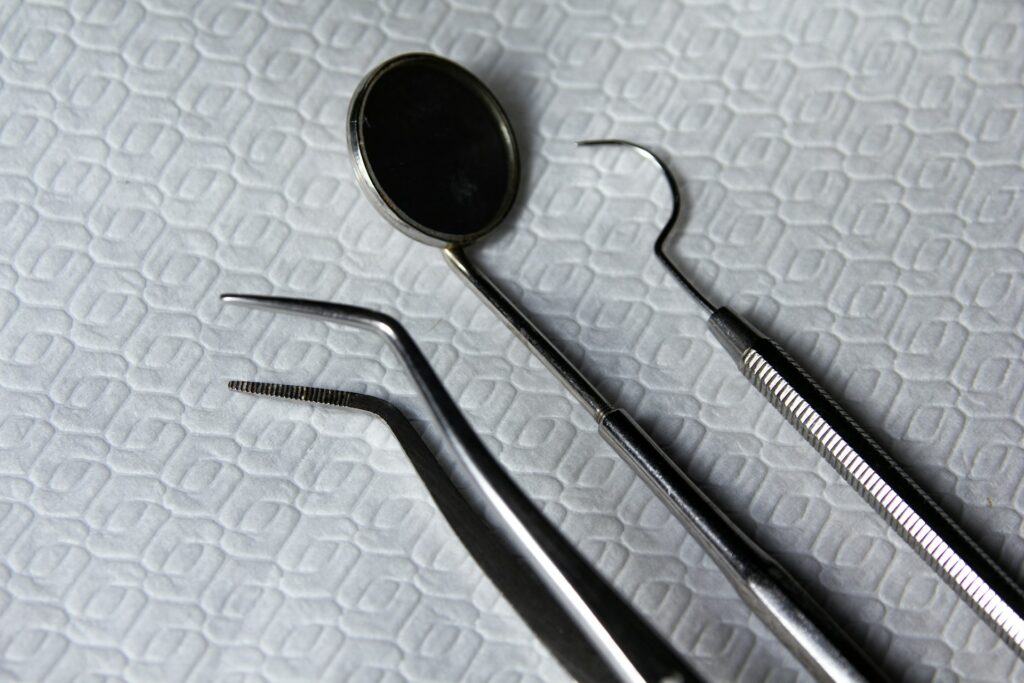
At Intermountain Dental, we believe that prevention is the foundation of a lifetime of healthy teeth and gums. Regular dental hygiene and preventative care are crucial in keeping your smile bright and avoiding more complex dental problems down the road. Our skilled dental hygienists are here to help you maintain optimal oral health through routine cleanings, exams, and personalized advice.
Preventative dentistry focuses on proactive care to prevent dental issues before they develop into serious problems. By investing in your dental health today, you can avoid costly treatments and painful procedures in the future. Regular visits to your hygienist are an essential part of this process.
Common dental problems that preventative care helps to avoid include:
A professional dental cleaning is one of the most important steps in keeping your teeth and gums healthy. During your cleaning appointment, our hygienists will remove plaque and tartar (hardened plaque) that cannot be removed by regular brushing and flossing. Left unchecked, plaque and tartar can lead to cavities and gum disease.

Before your cleaning, we’ll do a thorough exam of your teeth and gums to check for signs of gum disease or other potential issues.
Using specialized instruments, your hygienist will carefully remove plaque and tartar from your teeth, especially along the gum line.
After the plaque and tartar are removed, your teeth will be polished to remove any surface stains and to smooth out the surfaces of your teeth.
In some cases, a fluoride treatment may be applied to strengthen your enamel and provide added protection against cavities.
At Intermountain Dental, we are committed to providing comprehensive care to help you maintain a healthy smile. If you’ve been diagnosed with gum disease (also called periodontal disease), your dentist may recommend scaling and root planing—a deep cleaning procedure to restore your oral health and prevent future gum disease and bone loss.
Scaling and root planing are non-surgical treatments used to treat gum disease and prevent it from progressing. This procedure is often recommended when plaque and tartar (hardened plaque) have built up below the gumline, causing inflammation, infection, and potentially tooth loss.
• Scaling involves removing plaque and tartar from the surface of the teeth, both above and below the gumline. This step helps reduce bacteria and prevents further gum irritation.
• Root Planing smooths the roots of the teeth to help the gums reattach more firmly to the teeth. This helps to eliminate any bacteria from the root surface and promotes healing of the gum tissue.
When gum disease is left untreated, it can lead to serious problems such as:
Gum recession (gums pulling away from teeth)
Tooth mobility or loss
Bad breath or a bad taste in the mouth
Gum bleeding or swelling
Scaling and root planing help stop the progression of gum disease, prevent tooth loss, and promote healthier gums and teeth.
Scaling and root planing is typically recommended for patients who have gingivitis (early-stage gum disease) or periodontitis (advanced gum disease). Common signs that you may need this procedure include:
During your regular dental check-up, your dentist will evaluate the health of your gums and determine if scaling and root planing are necessary.
Scaling and root planing is generally performed in two steps—either in one appointment or over multiple visits, depending on the severity of the condition:
1. Preparation: Local anesthesia will be applied to numb the treatment area and ensure you are comfortable throughout the procedure.
2. Scaling: Your dentist or hygienist will use specialized tools to remove plaque and tartar from the surfaces of your teeth and below the gumline.
3. Root Planing: The roots of your teeth will be smoothed out to remove bacteria and promote gum reattachment.
4. Post-Treatment Care: After the procedure, you may experience mild discomfort, swelling, or bleeding. These symptoms typically subside within a few days.
After your scaling and root planing procedure, here are some tips to help with recovery:
• Pain management: Mild discomfort can be managed with over-the-counter pain relievers, as recommended by your dentist.
• Diet: Stick to soft foods and avoid hard or crunchy foods that may irritate your gums.
• Oral hygiene: Continue brushing and flossing, but be gentle around the treated areas. Your dentist may recommend a special mouth rinse to help reduce bacteria and promote healing.
• Follow-up appointments: Your dentist may schedule a follow-up visit to assess the healing process and determine if any further treatment is needed.
• Prevents further gum disease progression
• Promotes healthier gums and stronger teeth
• Reduces bad breath
• Helps improve overall oral health
Most patients report minimal discomfort during or after scaling and root planing. The use of local anesthesia ensures that the procedure itself is painless. Any mild discomfort or sensitivity following the treatment is usually temporary and can be managed easily.
Scaling and root planing is often a one-time procedure for patients with gum disease. However, depending on your oral health, your dentist may recommend regular maintenance cleanings or follow-up treatments to keep your gums healthy.
If you’re experiencing signs of gum disease, don’t wait—schedule an appointment with Intermountain Dental today. Our team of professionals will evaluate your oral health and recommend the best treatment plan tailored to your needs. We are here to support you on your journey to a healthier, happier smile!
Fluoride is a natural mineral that strengthens enamel and helps prevent tooth decay. Your hygienist may recommend fluoride treatments to boost your protection against cavities, especially if you are at higher risk of dental decay.
Dental sealants are thin coatings applied to the chewing surfaces of back teeth (molars). They act as a barrier to prevent food and bacteria from getting trapped in the grooves of your teeth, reducing the risk of cavities.
During your dental exam, your hygienist may also conduct an oral cancer screening to check for any abnormal growths or signs of oral cancer. Early detection is key to successful treatment.
Your hygienist will evaluate the health of your gums during your cleaning. If any signs of gum disease (such as bleeding or swelling) are present, your hygienist will provide guidance on improving your oral hygiene and may recommend more frequent cleanings or other treatments.
Most people should have a professional cleaning and exam every six months, though some may need more frequent visits depending on their oral health needs. If you have a history of gum disease, cavities, or other dental issues, your hygienist may recommend more frequent cleanings to help keep your smile in top shape.
While professional cleanings are essential, your daily oral hygiene routine is equally important. Brushing your teeth at least twice a day with fluoride toothpaste and flossing daily are key steps in preventing plaque buildup, cavities, and gum disease. We also encourage the use of mouthwash to help freshen breath and fight bacteria.
Preventative care is the best way to keep your smile healthy and your mouth free from issues like cavities and gum disease. Don’t wait for problems to arise—schedule your next cleaning today!
Contact us at (208) 448-1241 or [email protected], or fill out our online form to book an appointment.
We look forward to helping you maintain a healthy, beautiful smile for life!